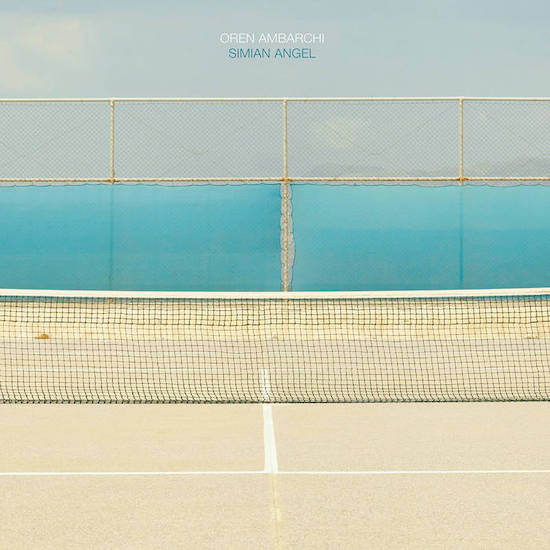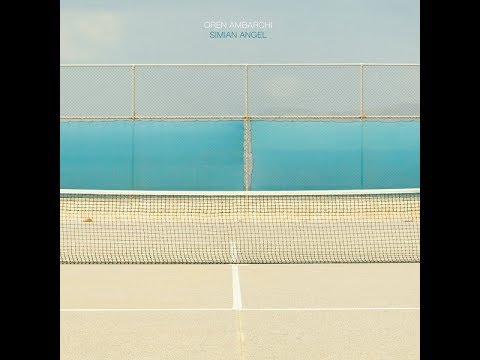Oren Ambarchi is something of a globetrotting underground music superstar, a voracious polymath who appears capable of mastering any instrument and at home in any genre. Indeed, his ability to turn his hand to anything from black metal noise to jazz drumming via ambient electronics and Fennesz-like guitar stylings makes him a one-man incarnation of everything exciting that’s going on in experimental music right now. The names of his collaborators alone read like a who’s who of the great and the good of experimental music: Peter Rehberg, Charlemagne Palestine, Jim O’Rourke, Keiji Haino, SUNN O))), Sam Shalabi… the list goes on and on. Ambarchi’s solo output only enhances this enigmatic multi-facity: his album’s are always fascinating, often beautiful but rarely reveal much of the man behind them. Which is just the way he likes it.
Initially, Simian Angel seems to be an ambient record, in line with his Grapes from the Estate album. But repeated listens reveal surprising byways and nooks and crannies. I had to do a double-take on the press release to be sure that what I was hearing was a guitar, such is the way in which the vaporous drones that form the album’s core, especially on the first track ‘Palm Sugar Candy’, sound like they were produced on a synthesizer. But no, Ambarchi is playing the guitar. His lines are extended and overlapped, shimmering glaciers of fragile tones that evoke the solo work of Ash Ra Tempel’s Manuel Göttsching on his seminal Inventions for Electric Guitar. It’s a clean, crisp sound but also one that evokes mystery and dreamlike states. Set against this is the muted percussion of Brazilian drummer Cyro Baptista, a gentle pattering that somehow manages to sound bizarre and exotic.
Ambarchi has long expressed his love for Brazilian music but do not expect any overt references to tropicalia on Simian Angel. ‘Palm Sugar Candy’ instead builds gently, edging slowly towards a pay-off that remains elusive. Ambarchi’s organ-like guitar drones swirl around meandering percussive interjections from Baptista and muttered vocal utterances. It feels like a more minimal take on the Berlin school of Klaus Schulze circa Moondawn but with the tension and sci-fi flourishes reined in to leave a widescreen abstract canvas.
In comparison, the title track (also side-long) is almost a riot of textures and dynamics. Its opening segment features raucous strumming of the berimbau, a Brazilian bowed instrument, while Baptista is allowed to display the range of his supple percussive brilliance. Gradually the piece breaks down into a minimal, fractured piano melody supported by scratchy, barely-perceptible electronics. That organ-like guitar resurfaces and the piano dissolves slowly into a certain formlessness, a nod to Ambarchi’s experience of free improv, but supported by a steady rhythmic pulse. Certain passages evoke Popol Vuh or Cluster (for all the Brazilian flourishes, Simian Angel feels quite German) while others bring to mind avant-garde composers like Robert Ashley or Laurie Spiegel. All this is created seamlessly, the parts fusing into one another to create a vivid, if mysterious, tapestry.



